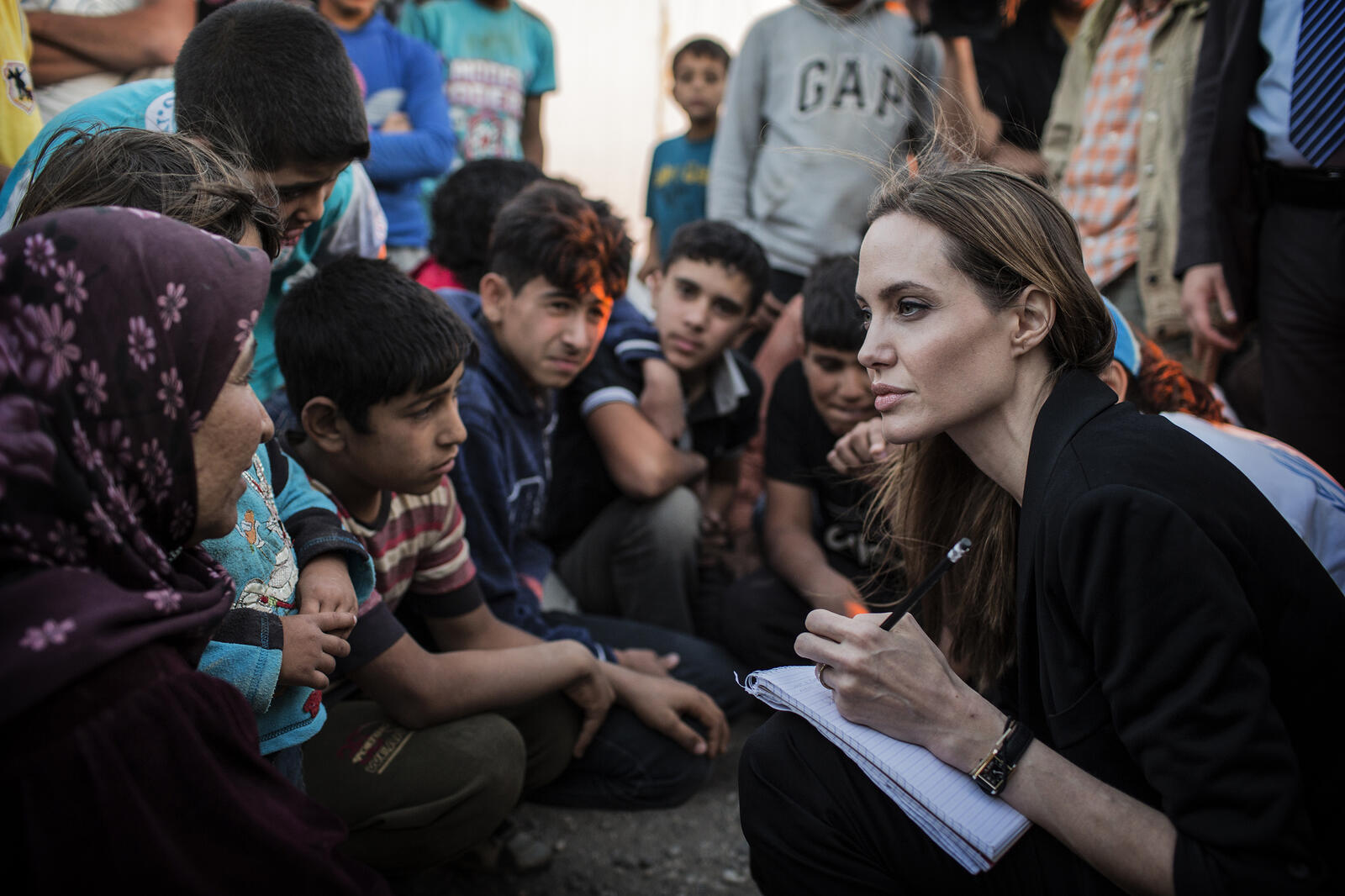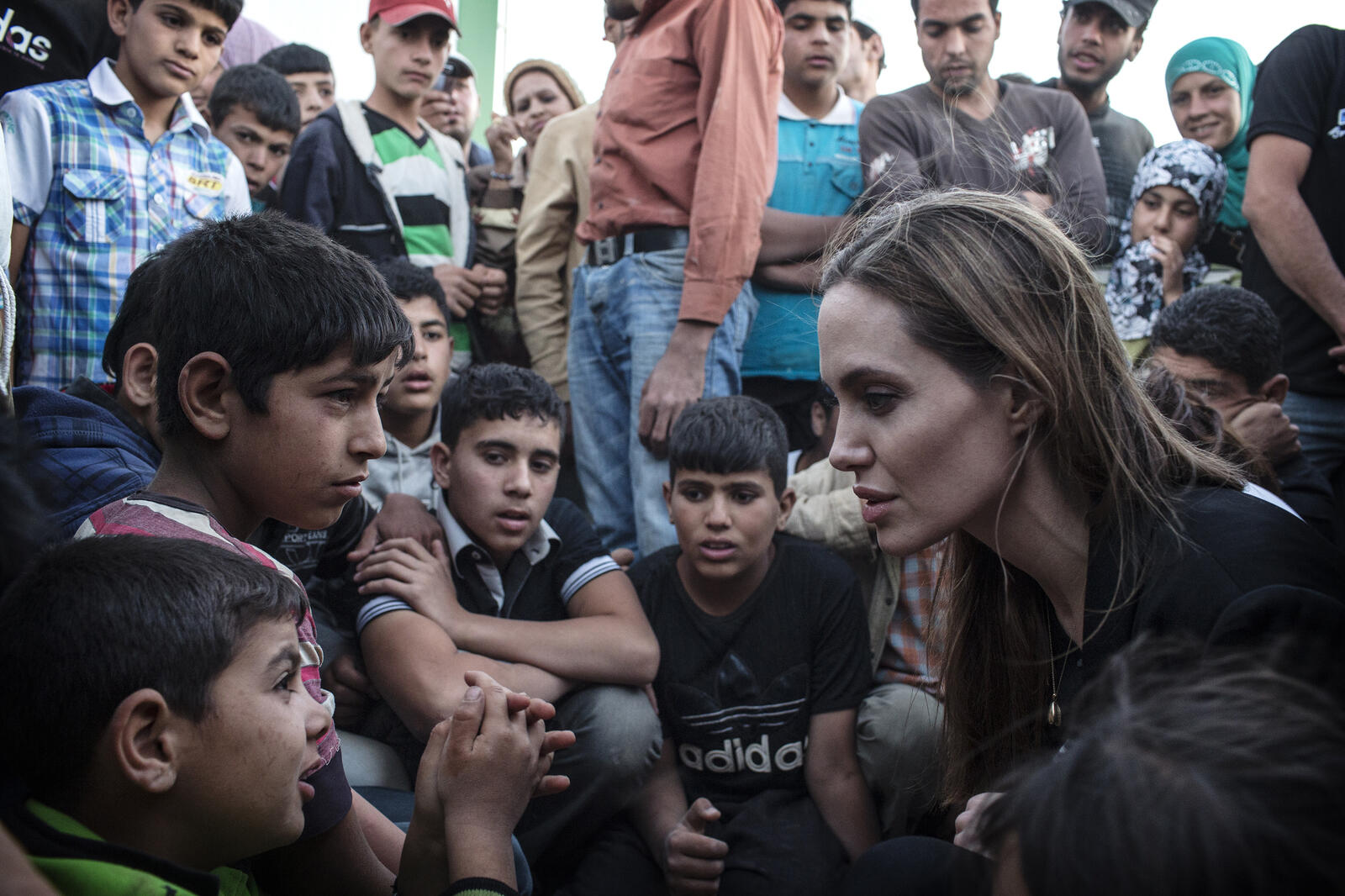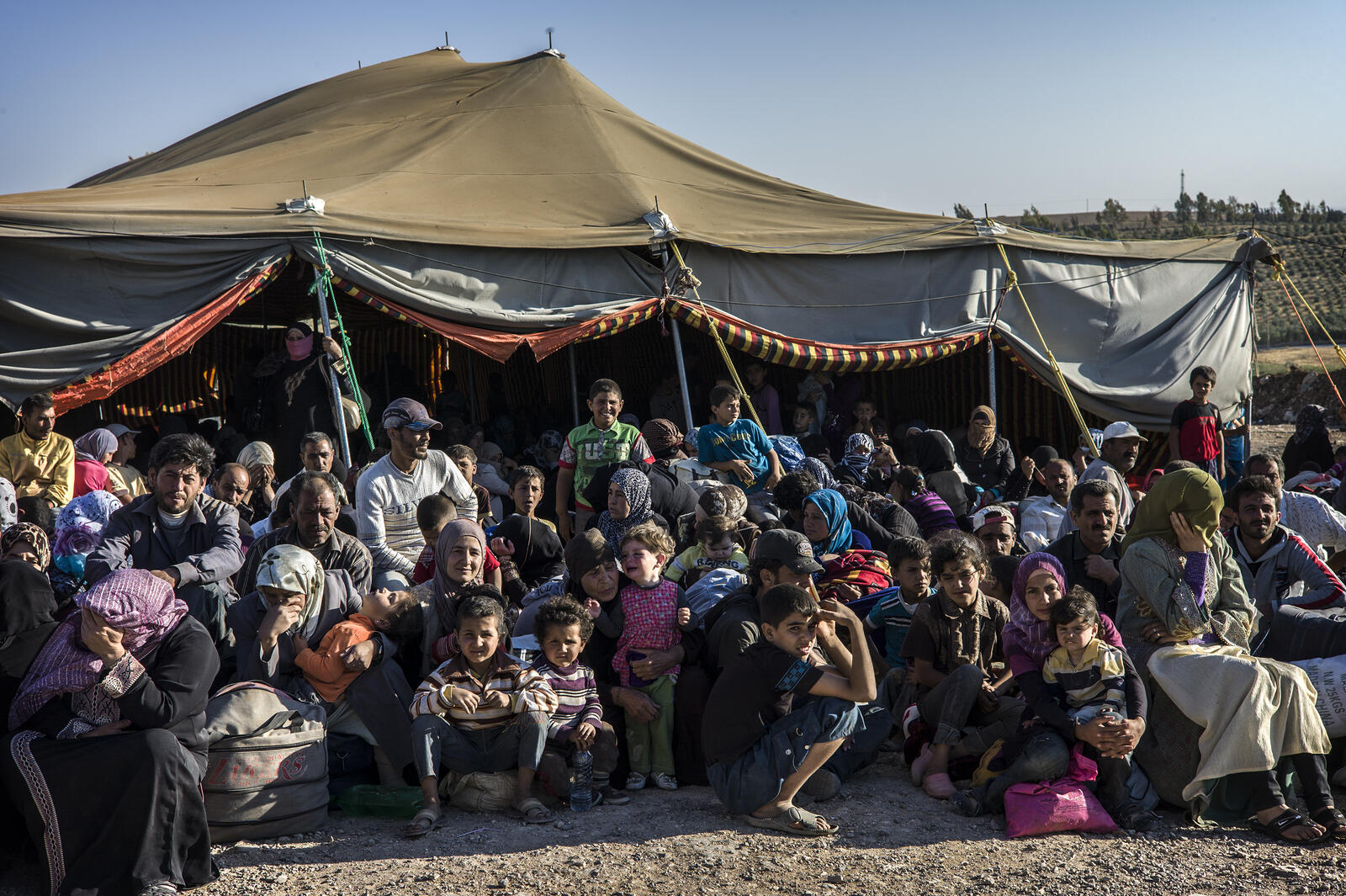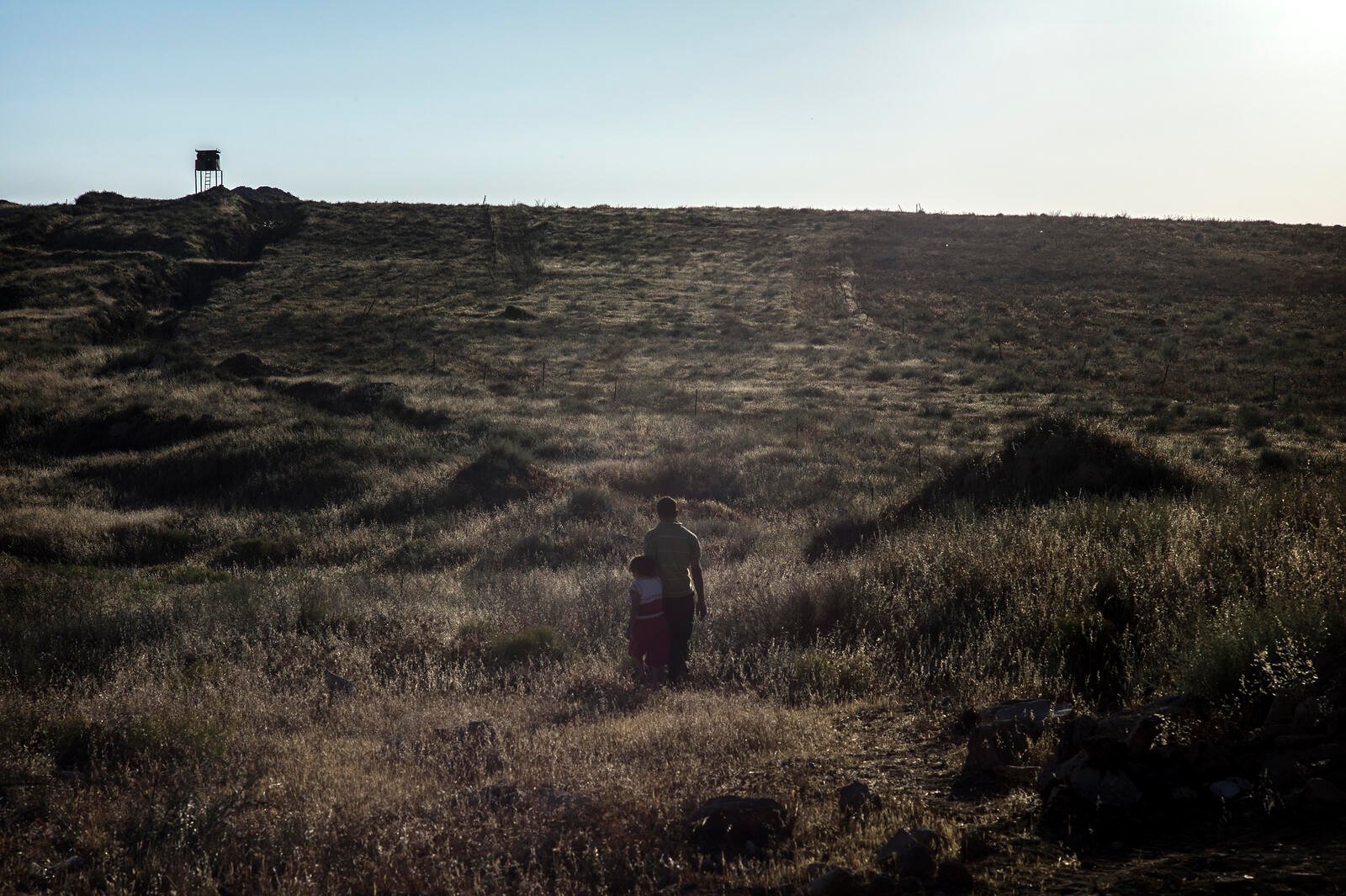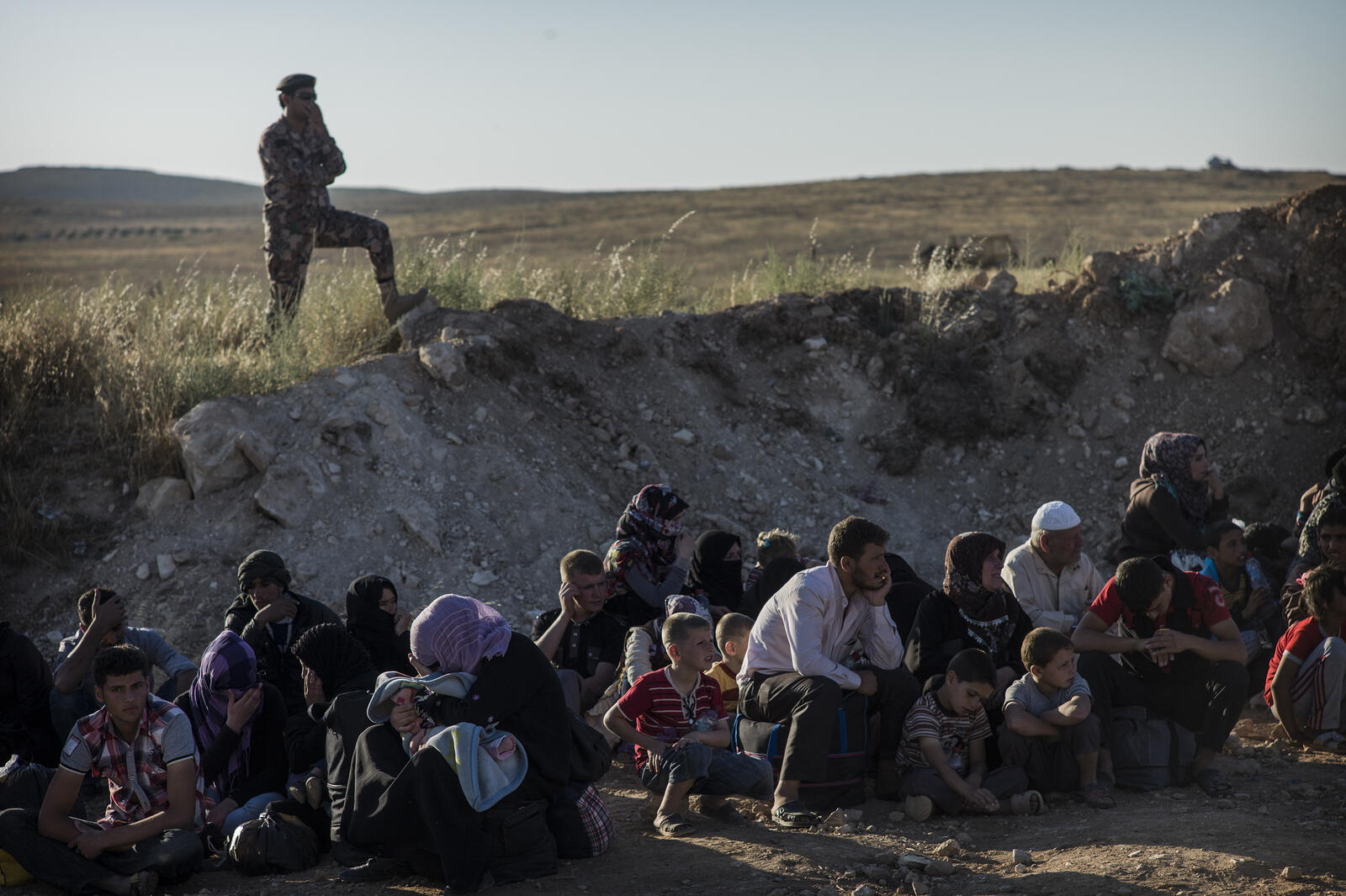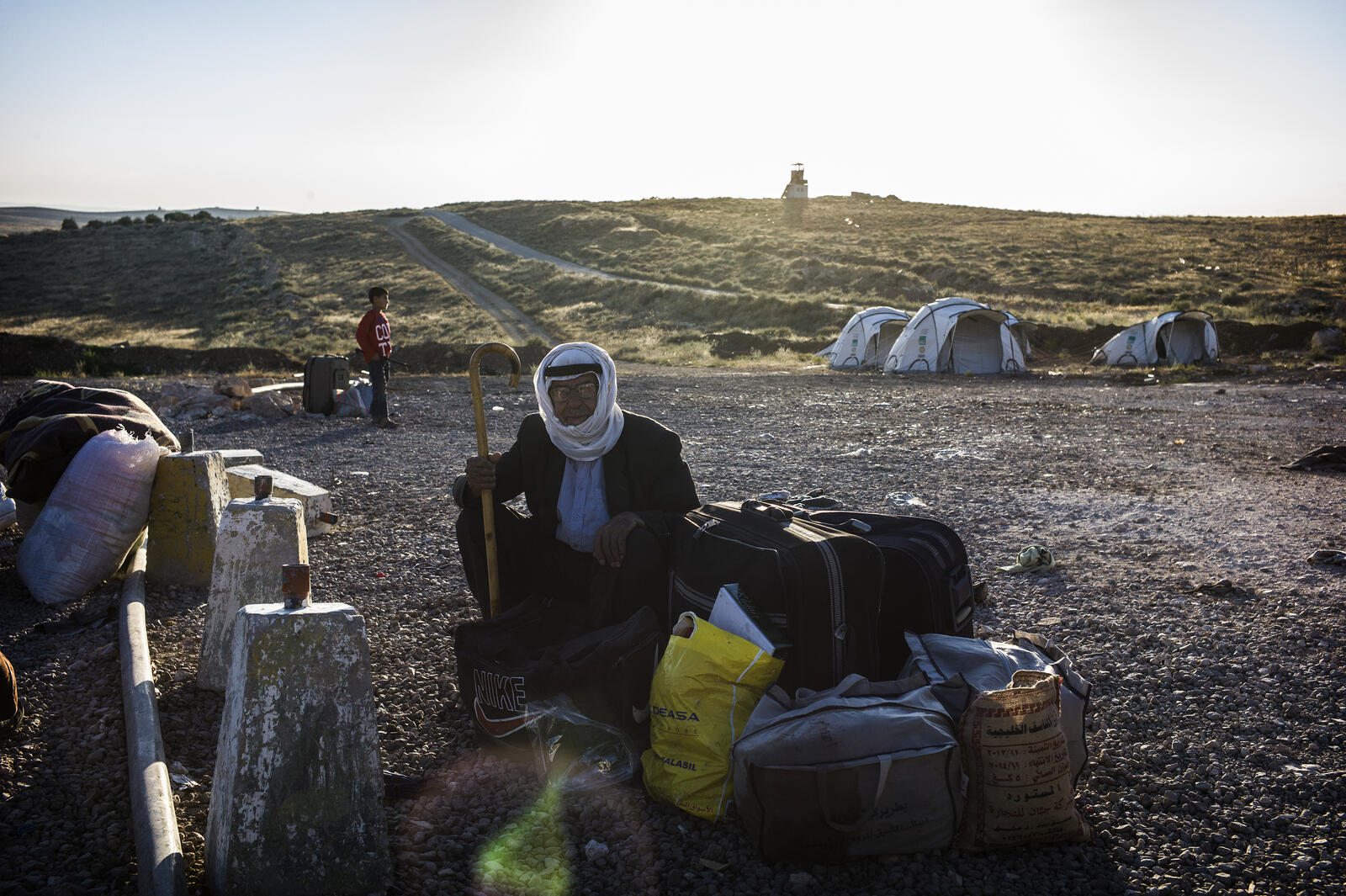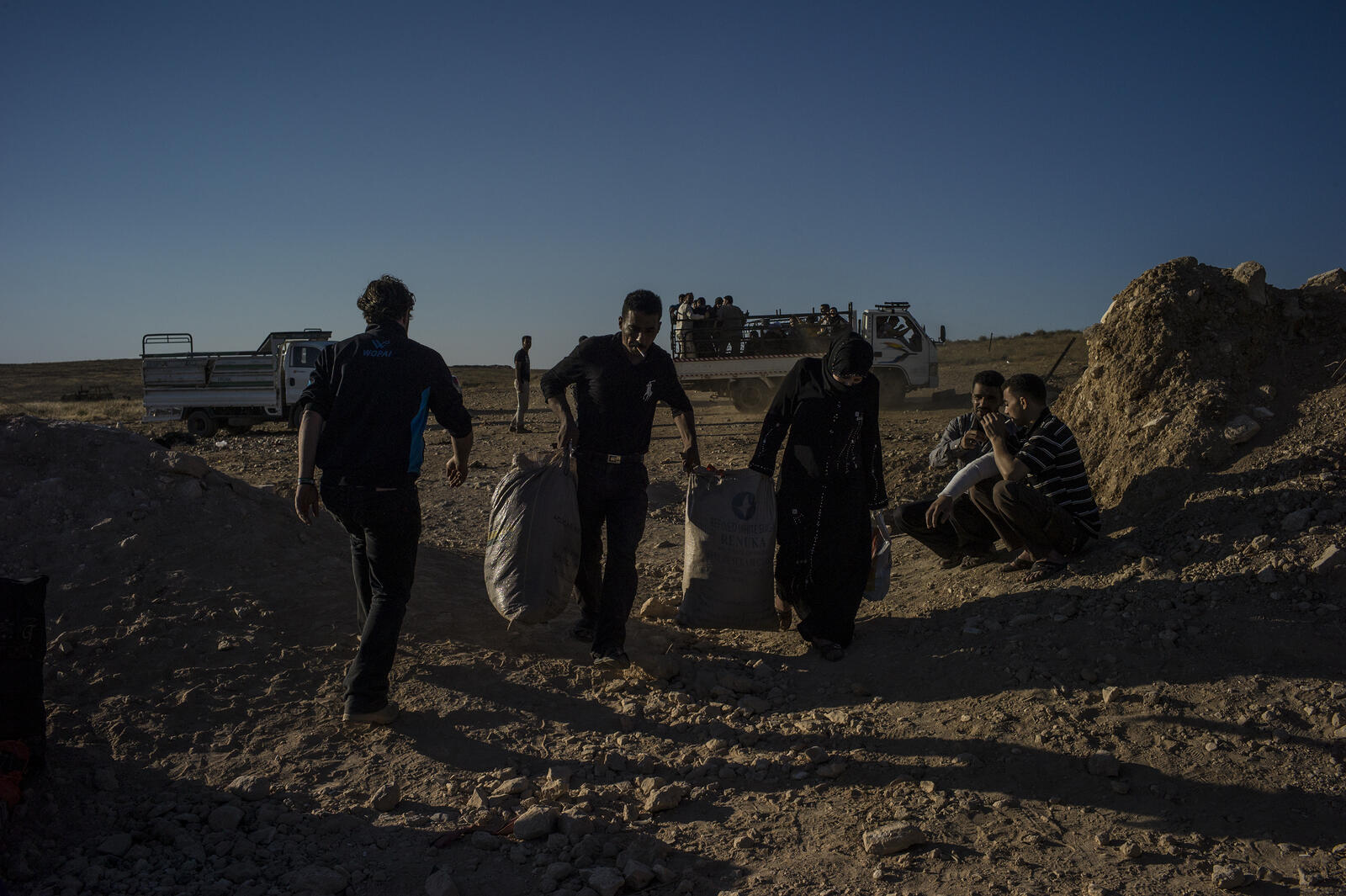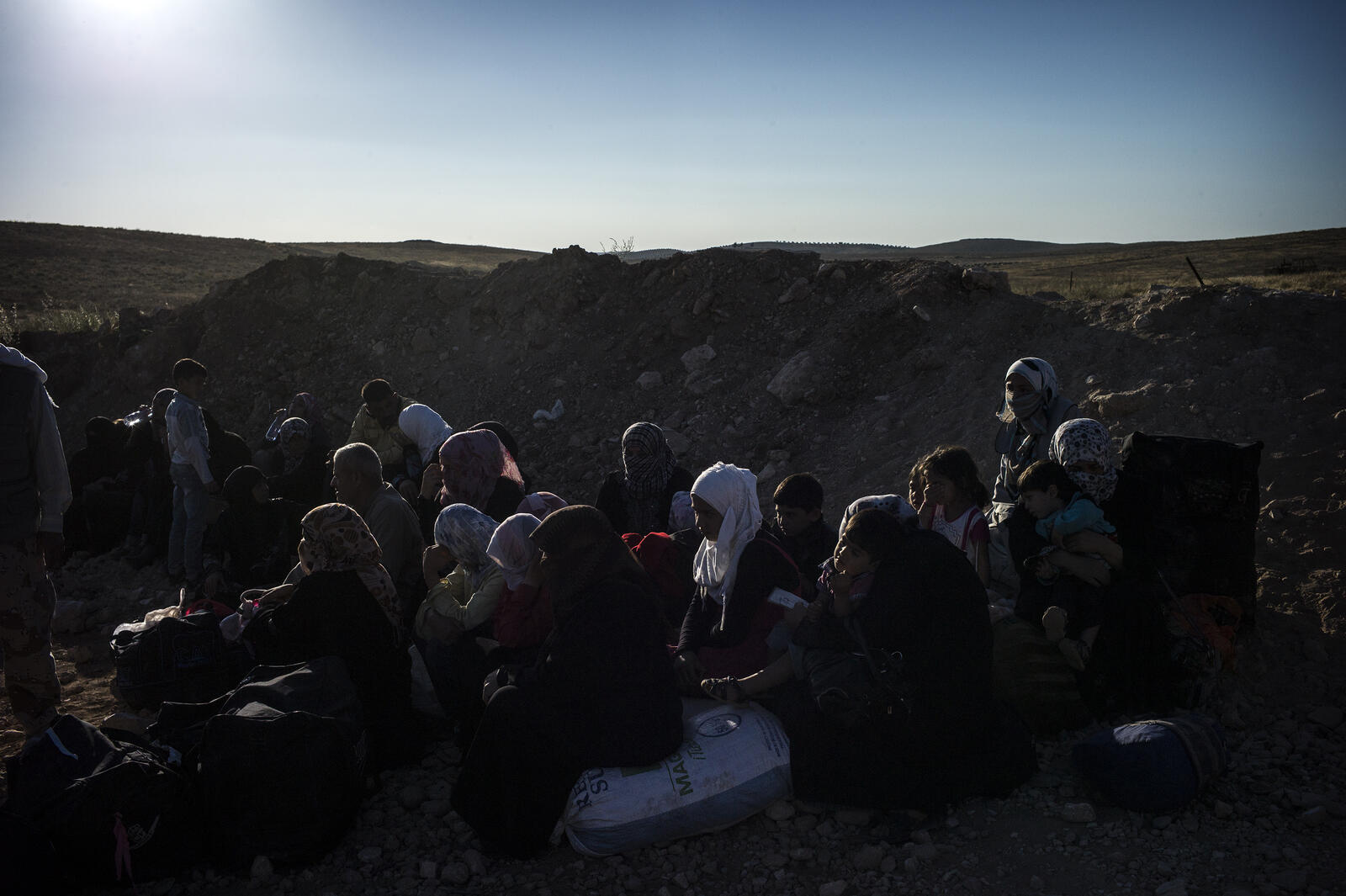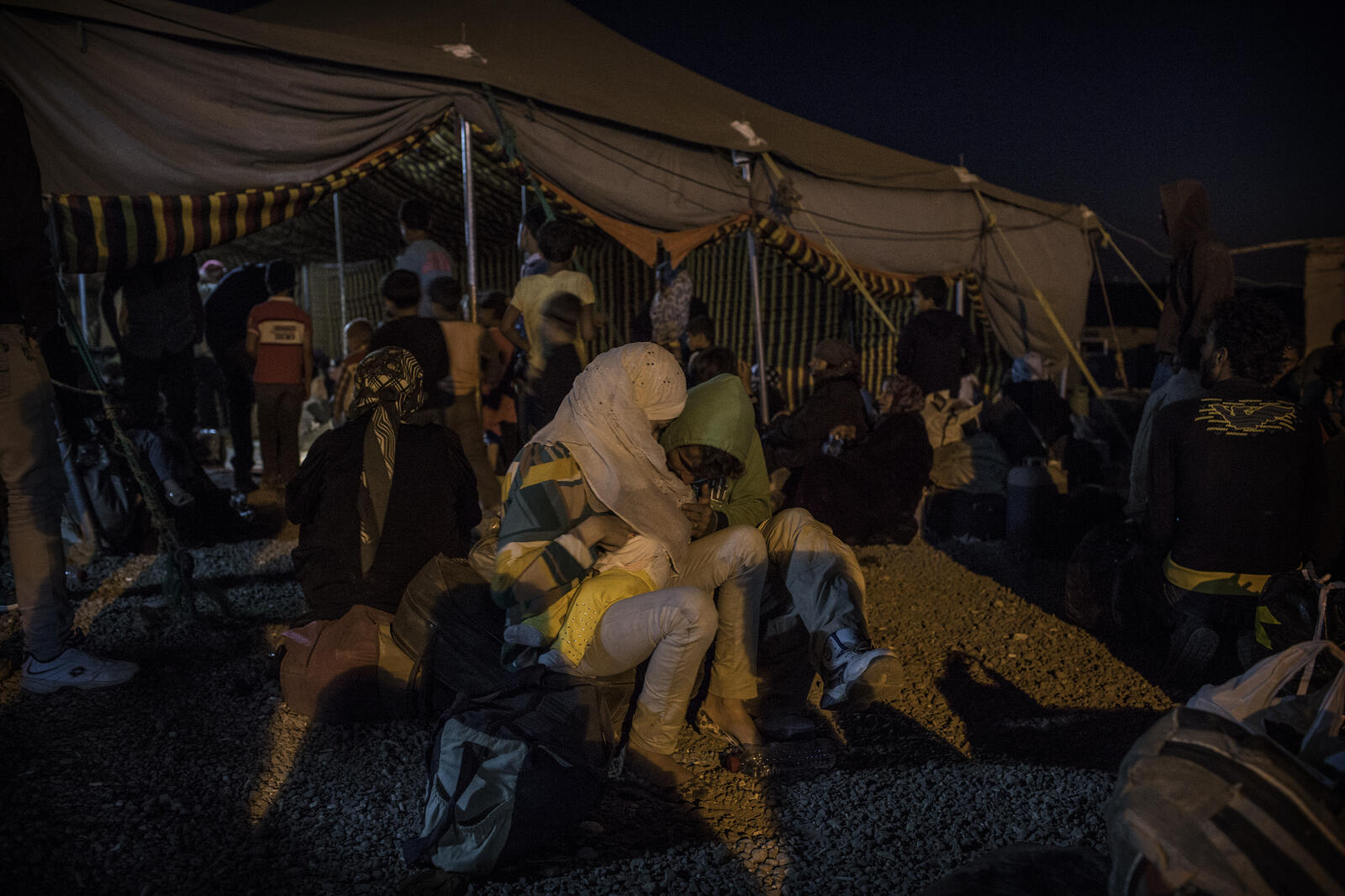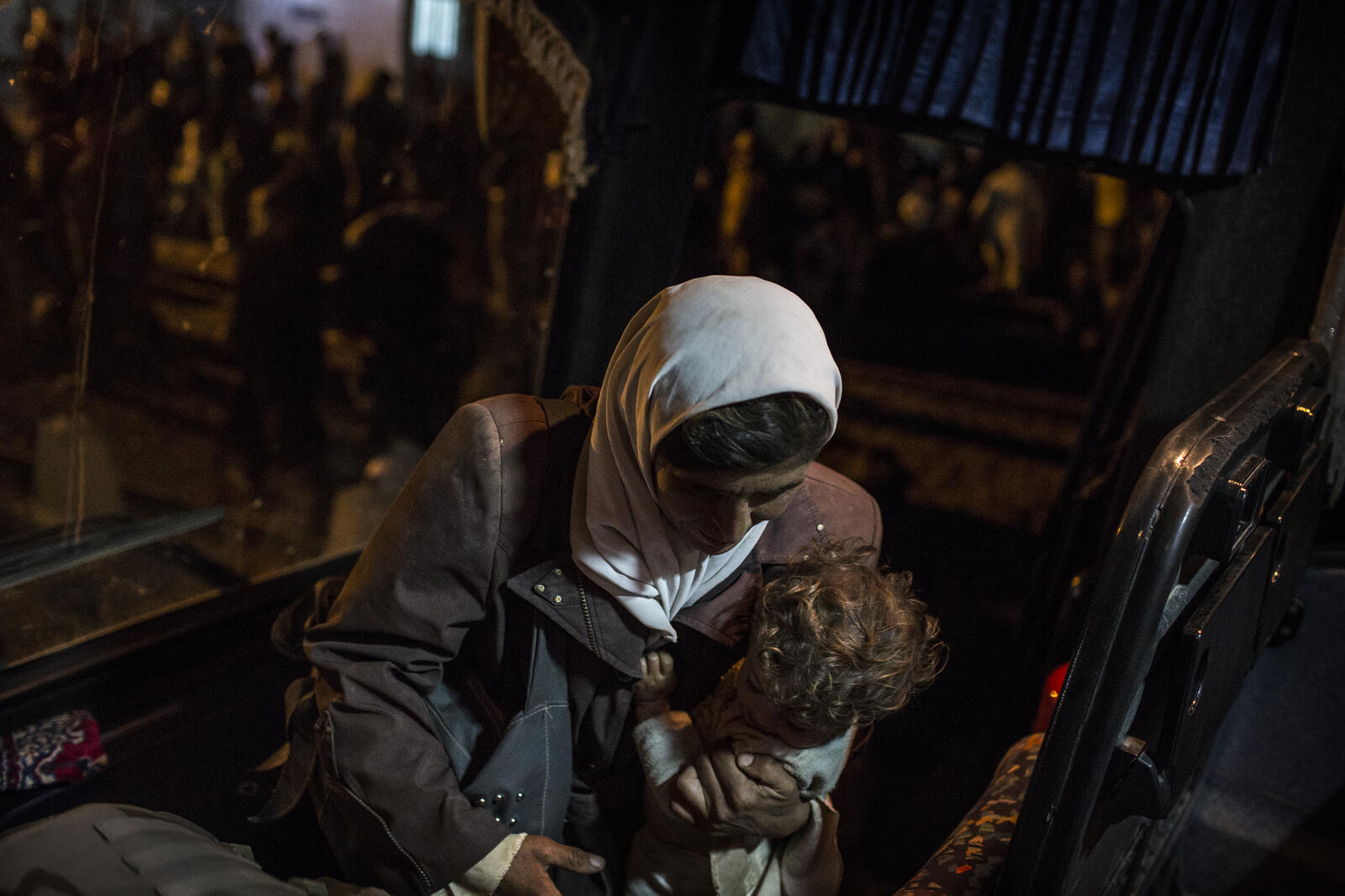Angelina Jolie visits Syrian border
Angelina Jolie visits Syrian border

UNHCR Special Envoy Angelina Jolie records the stories of refugees who have just escaped the war in Syria at the Jaber border crossing in Jordan on 18 June.
Jaber border crossing, Jordan--Along a dirt track on an unexpectedly cool and windy night on Jordan's border with Syria, as shadows lengthened across the barren hills, UNHCR Special Envoy Angelina Jolie listened to the stories of men women and children who had fled Syria just hours before. She heard stories of bombs and pain and loss from people fleeing Homs, Dara'a and Qusair, three of the communities devastated by the Syrian conflict. Ms. Jolie encouraged the refugees to tell her, and through her the world, of their ordeal. "We can't know your pain," Ms. Jolie said at one point, speaking to families who had lost their loved ones. But she listened.
Ms. Jolie is in Jordan to mark World Refugee Day, which each year is commemorated on June 20. She and the UN High Commissioner for Refugees, António Guterres, arrived in the country on 18 June. Mr Guterres started his visit to the region in Lebanon, where he met with refugees and government officials. In Jordan, he and Ms. Jolie will meet with the government and refugees living in Jordan's cities, as well as in the sprawling Za'atri refugee camp.
The purpose of her visit, said Ms. Jolie, is "to show support for Syria's refugees, to call on the world to address their plight, and to better understand needs in Jordan and other countries in the region most directly affected by this devastating conflict."
At the Syrian border, Ms. Jolie heard stories of great courage and sadness. Mohammed Al-Kassem, his wife Walida and their young daughter Faten had just arrived after escaping from Qusair, the site of a bitter battle which left the town in rubble and unleashed a new wave of refugees into neighbouring countries. "In the battles and bombing, most of my friends died," he said. "There is nothing left, all was destroyed, no buildings, no medicines. Ninety five men died because their wounds became infected and there was nothing to treat them with. I was the only one of my family to escape. Those who could not flee can only wait for death."
After meeting with refugees, Ms Jolie was briefed by Maj. General Hussein Al-Zyoud, the commander of the Jordan Border Security Forces, and his staff. As they talked, shelling just across the border in Syria could be clearly heard.
The war in Syria forced more people to flee last year than any other conflict in the world. In the last six months the number has more than doubled to 1.6 million, of whom 540,000 are in Jordan.
"The worst humanitarian crisis of the 21st century is unfolding in the Middle East today," said Ms. Jolie.
She urged the world to do much more to help the people of Syria. "The international response to this crisis falls short of the vast scale of this human tragedy," she said. "Much more humanitarian aid is needed, and above all, a political settlement to this conflict must be found."

